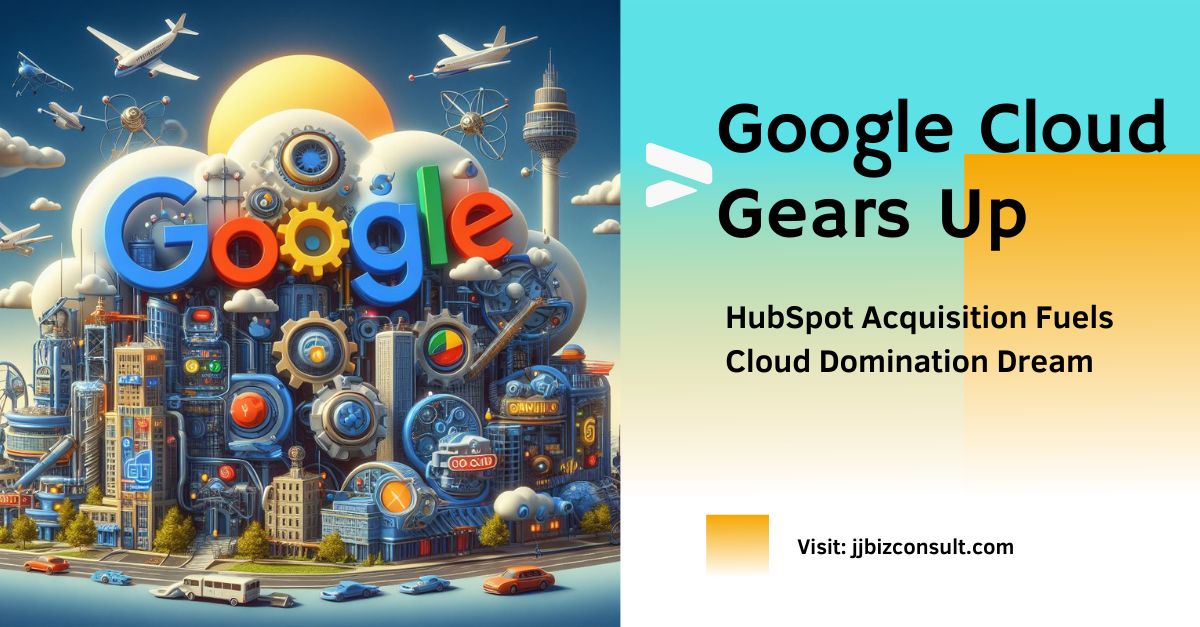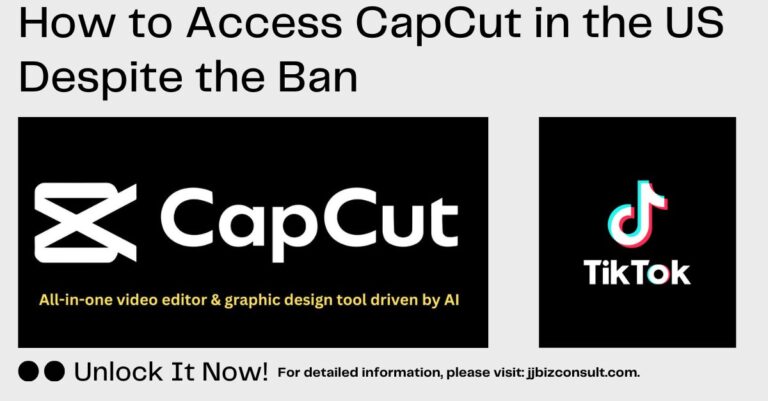
Google Cloud Gears Up: HubSpot Acquisition Dream
Google Cloud Gears Up: The tech world is abuzz with news! Google’s parent company, Alphabet, is reportedly in the final stages of acquiring HubSpot, a leading marketing software company valued at $30 billion. This monumental deal, poised to be Google’s largest acquisition ever, signifies a strategic shift towards dominance in the lucrative cloud applications market.
Cloud Wars: Google Cloud Taking on the Giants

Currently, Google sits at number three in the global cloud services provider race. However, this achievement is overshadowed by the immense market share held by its competitors – Microsoft and Amazon. While Microsoft enjoys a comfortable lead, Amazon reigns supreme, controlling a staggering third of the entire cloud market.
This acquisition marks a significant move for Google in its quest to close the gap with Microsoft in the cloud space. HubSpot’s impressive suite of marketing software solutions, tailored towards inbound marketing strategies, perfectly complements Google’s existing cloud offerings like Google Workspace (formerly G Suite). This combined force could potentially provide businesses with a comprehensive and integrated solution for managing their online presence, marketing campaigns, and collaborative workflows.
Beyond the Cloud: Synergies in AI
While Google may be playing catch-up in the cloud arena, it already holds its own in the field of Artificial Intelligence (AI). In fact, Google’s prowess in AI development is arguably on par with Microsoft’s. By acquiring HubSpot, Google gains access to valuable data insights into marketing trends and customer behavior – a goldmine for further refining its AI algorithms and machine learning capabilities. This synergy between AI and marketing software could lead to groundbreaking advancements in targeted advertising, customer experience personalization, and marketing automation.
The Road Ahead: A Cloud Odyssey
The proposed acquisition of HubSpot underscores Google’s unwavering commitment to becoming a major player in the cloud services market. The combined expertise and resources of Google and HubSpot hold the potential to create a compelling cloud platform for businesses of all sizes. Whether this move will dethrone Microsoft from its cloud throne remains to be seen, but one thing is certain: the cloud wars are heating up, and Google is prepared to take on the challenge with an audacious strategy.
Google Cloud: The HubSpot Acquisition

- The Strategic Move Google’s interest in HubSpot is not merely a financial transaction; it’s a strategic maneuver. By acquiring HubSpot, Google aims to strengthen its position in the cloud services landscape, particularly in the realm of marketing software. As businesses increasingly rely on cloud-based solutions, Google recognizes the need to expand its offerings beyond search and advertising.
- Challenging Microsoft Microsoft currently dominates the cloud applications market, with a substantial share of users and enterprises relying on its suite of productivity tools (such as Microsoft 365). Google, while a major player, trails behind Microsoft in terms of market share. The HubSpot acquisition could be the game-changer Google needs to level the playing field.
- Market Share Dynamics
- Google: As the world’s third-largest cloud services provider, Google has made significant strides in recent years. Its Google Cloud Platform (GCP) offers a robust infrastructure for businesses, including cloud storage, machine learning, and analytics services.
- Microsoft: Microsoft’s Azure platform holds the lion’s share of the market. With a comprehensive suite of services, Azure caters to diverse business needs, from hosting websites to running complex applications.
- Amazon’s Dominance While Google and Microsoft battle it out, Amazon Web Services (AWS) remains a formidable competitor. AWS commands a third of the entire cloud market, emphasizing the need for Google to accelerate its growth.
Details about HubSpot’s Features
Let’s dive deeper into the features of HubSpot, the customer platform that’s designed to scale with businesses of all sizes. Whether you’re a one-person business or a large enterprise, HubSpot offers a suite of tools across marketing, sales, customer service, operations, and content management. Here are some key features:
- Free CRM (Customer Relationship Management):
- HubSpot’s free CRM helps you manage customer relationships and streamline business processes.
- Features include contact, deal, and task management, email tracking, live chat, document sharing, meeting scheduling, and more.
- Marketing Hub:
- Marketing software for small to enterprise businesses.
- Attract the right audience, convert visitors into customers, and run complete inbound marketing campaigns at scale.
- Features include:
- Ads Software: Use CRM data to create highly targeted ad campaigns and gain valuable insights.
- Google Ads Integration: Bring in more leads with Google Ads using CRM and web analytics data.
- Exit Intent Forms: Turn website visitors into leads with customizable popup forms.
- Blog Software: Publish blog content that drives traffic and conversions.
- Marketing Analytics & Dashboard: Measure performance for marketing campaigns with built-in analytics.
- Dedicated IP Address: Ensure marketing emails get delivered using a dedicated IP.
- Free Online Form Builder: Capture leads from your website using an online form builder.
- Free Landing Page Builder: Create and test beautiful landing pages that generate leads.
- Calls-to-Action: Convert visitors into leads with personalized calls-to-action.
- Lead Capture Software: Automatically sync leads to your CRM with HubSpot forms.
- Social Media Management: Prioritize social interactions.
- Free Email Hosting: Engage customers with personalized emails.
- Behavioral Targeting: Personalize outreach at scale.
- Ad ROI: Quickly create ads and sync leads.
- Campaigns: Manage campaign priorities within your marketing software.
- Email Marketing Tools: Create, personalize, and optimize marketing emails.
- Form Maker: Create lead-capture forms without coding.
- Drag and Drop Email Builder.
- Sales Hub:
- Empower your sales team with tools for lead management, deal tracking, and communication.
- Features include email templates, document sharing, meeting scheduling, live chat, sales quotes, and more.
- Service Hub:
- Enhance customer service and support.
- Features include ticketing, knowledge base, live chat, customer feedback, and automation.
- Content Hub:
- Manage content creation, distribution, and analytics.
- Includes tools for blogging, SEO optimization, and content performance tracking.
- Operations Hub:
- Streamline operations and automate workflows.
- Features include data syncing, custom objects, and integrations.
Remember that HubSpot’s features are designed to help businesses build exceptional customer experiences. Feel free to explore further or ask if you have any specific questions! 😊

HubSpot comparison with other Marketing Platforms
When comparing HubSpot to other marketing platforms, it’s essential to consider the features, pros, and cons of each system. Let’s explore how HubSpot stacks up against some popular alternatives:
- Adobe Marketing Cloud vs. HubSpot Marketing Hub:
- Adobe Marketing Cloud:
- Pros: Adobe offers a comprehensive suite of marketing tools, including analytics, social media management, advertising, and content creation.
- Cons: It can be complex and expensive, especially for smaller businesses.
- Comparison: Adobe Marketing Cloud caters to large enterprises with diverse needs but may overwhelm smaller teams due to its complexity.
- HubSpot Marketing Hub:
- Pros: HubSpot provides an all-in-one solution for inbound marketing, including CRM, content management, social media, and automation.
- Cons: Some advanced features may require additional paid add-ons.
- Comparison: HubSpot is user-friendly, scalable, and suitable for businesses of all sizes. Its focus on inbound marketing aligns well with modern marketing strategies.
- Adobe Marketing Cloud:
- HubSpot vs. Marketo:
- Marketo:
- Pros: Marketo is robust and customizable, offering advanced features for lead management, scoring, and nurturing.
- Cons: It can be complex to set up and maintain, requiring dedicated resources.
- Comparison: Marketo is ideal for enterprises with complex marketing needs, but its learning curve may be steep for smaller teams. HubSpot, on the other hand, emphasizes simplicity and ease of use.
- Marketo:
Conclusion: Google Cloud Gears Up
In summary, HubSpot stands out for its user-friendly interface, scalability, and focus on inbound marketing. However, the best choice depends on your specific business requirements, team size, and budget. Consider your priorities and evaluate each platform’s features to make an informed decision! 😊
Who is the leader in Cloud Computing?
Gemini AI: Google’s New Generative AI





